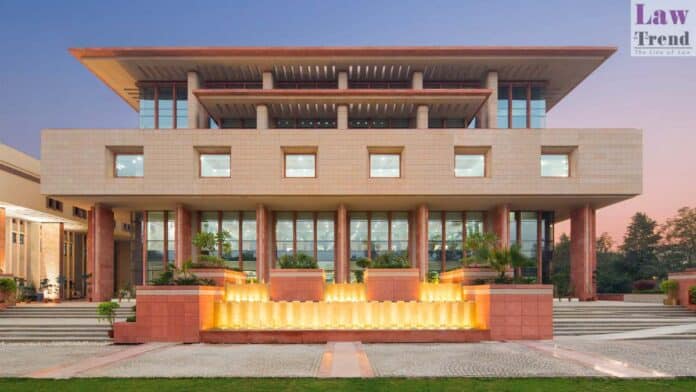The Delhi High Court has held that the fundamental right to commercial speech does not protect false or misleading advertisements, ruling that Patanjali’s Chyawanprash commercial branding rival products as “dhokha” (deception) amounted to unlawful disparagement. The company has been directed to withdraw the advertisement within 72 hours.
Justice Tejas Karia observed that an advertisement loses constitutional protection the moment it becomes “false, misleading, unfair, or deceptive.” The bench noted that Patanjali’s Chyawanprash commercial implied that all other manufacturers were deceiving customers, crossing the line of permissible commercial puffery.
“A perusal of the impugned advertisement shows that the defendants [Patanjali] have tried to convey the message that all the manufacturers of Chyawanprash are deceiving their customers,” the court said. “If an advertisement crosses the permissible limits and becomes false, misleading, unfair, or deceptive, it ceases to enjoy the protection afforded by Article 19(1)(a) of the Constitution.”
The court emphasised that the right to freedom of speech does not extend to the dissemination of falsehoods or confer any right to “defame, disparage, or denigrate a competitor,” reiterating that the right to commercial speech is subject to reasonable restrictions under Article 19(2) of the Constitution.
The verdict came on a plea filed by consumer goods major Dabur, which sought an immediate injunction against Patanjali’s advertisement, calling it “per se defamatory and disparaging.” Dabur argued that the campaign tarnished the reputation of all Chyawanprash manufacturers and portrayed the entire product segment as defective.
Senior Advocate Sandeep Sethi, representing Dabur, told the court that the company holds over 60% of the Chyawanprash market share, and that the phrase “dhokha” unfairly painted all competitors in a bad light.
Senior Advocate Rajiv Nayyar, appearing for Patanjali, defended the commercial, arguing that it did not specifically refer to Dabur or any particular competitor. He contended that the use of the word “dhokha” was meant to convey that Patanjali’s product was a healthier and more authentic option, containing ingredients not found in other Chyawanprash products. Nayyar maintained that such advertising was a form of puffery protected as commercial speech under Article 19(1)(a).
Rejecting these arguments, Justice Karia held that even generic disparagement of an entire class of products is impermissible if it harms a market leader. The court clarified that while advertisers may exaggerate the benefits of their own products, they cannot malign or denigrate competing goods.
“It is open to exaggerate the claims relating to the goods or services and embellish their virtues or benefits, but it is not open to denigrate or disparage the goods of others as a class in its entirety,” the court said.
The bench added that comparative advertising is permissible only so long as it does not mislead or disparage a rival’s product. “Any factual claim or representation made in an advertisement must be not only accurate, but also free from the potential to mislead,” the order stated.
Finding Patanjali’s advertisement violative of constitutional and commercial norms, the High Court directed the company to take down the Chyawanprash commercial within 72 hours, holding that freedom of commercial speech cannot be used as a “licence to defame or deceive.”




